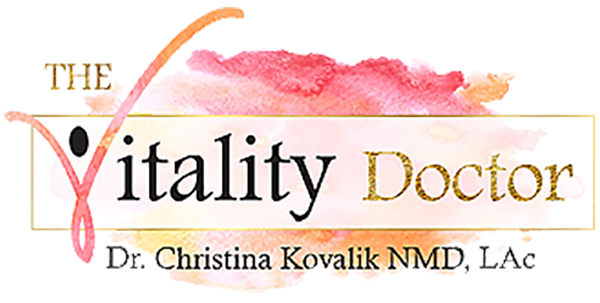Hormone imbalance and aging significantly impact men, often influencing their physical, emotional, and sexual health. This process can begin at any stage of life—from teenage years to middle age and into later stages like andropause, commonly referred to as “manopause.”
While less discussed than menopause in women, andropause can profoundly affect men’s overall well-being. A natural decline in testosterone levels is expected with age, but it can lead to symptoms of low testosterone and an increased risk of various health conditions, including heart disease, weight gain, hypertension, diabetes, and bone density loss.
The Role of Testosterone in Men’s Health
Testosterone, the primary male sex hormone, plays a crucial role in maintaining muscle mass, energy levels, sexual function, and overall vitality. As men age, their serum testosterone levels naturally decrease.
While some men experience only mild changes, others encounter severe symptoms that disrupt daily life. Understanding how this decline affects the body can help in making informed decisions about testosterone therapy and alternatives.
Symptoms of Low Testosterone Across Age Groups
The signs of testosterone deficiency vary by age. For younger men, particularly those in their 20s and 30s, symptoms of hypogonadism might include:
- Persistent fatigue and low energy.
- Trouble sleeping or sleep disorders like obstructive sleep apnea.
- Acne or other skin irritation.
- Difficulty maintaining a healthy weight.
- Increased stress or depressive symptoms.
For older men, particularly those over 40, the symptoms of low testosterone and hormonal decline are often more noticeable:
- Low sex drive and erectile dysfunction.
- Increased abdominal weight, or visceral fat, that’s challenging to lose.
- Loss of muscle mass and muscle strength.
- Mental health challenges, including anxiety, depressed mood, and lack of motivation.
- Poor sleep quality, chronic stress, and increased risk of cardiovascular disease.
- Heightened vulnerability to diabetes, osteoporosis, and other chronic medical conditions.
The Broader Effects of Hormonal Decline
As testosterone decreases, its effects on the body extend beyond the commonly known physical changes. Declining hormone levels can cause:
- Heart health risks: Low testosterone is associated with an increased risk of heart attack and coronary atherosclerosis. However, studies suggest that optimized levels may actually protect against cardiovascular events.
- Cognitive decline: Aging men with insufficient testosterone often experience memory lapses or difficulty focusing.
- Decreased sexual function: Issues like erectile dysfunction and reduced libido are common.
- Body composition changes: Increased body fat, particularly belly fat, leads to systemic inflammation, which can exacerbate other health problems.
What Are the Alternatives to Testosterone Replacement Therapy?
If you’re considering addressing low testosterone levels, there are options besides testosterone therapy:
- Natural Progression: Some men opt to leave their hormone levels alone, embracing the natural aging process. While this requires no intervention, it also leaves symptoms and associated health conditions unaddressed.
- Lifestyle Interventions: Changes to exercise and diet can improve serum testosterone levels. This includes high-intensity interval training, resistance workouts to build muscle strength, and a nutrient-dense diet.
- Supplements and Herbs: While certain supplements claim to boost testosterone, they rarely achieve the same normal range as TRT. It’s essential to consult a healthcare provider and ensure any product used is of high quality.
Testosterone Replacement Therapy: Methods and Side Effects
Testosterone replacement therapy (TRT) comes in various forms, such as TRT gel, intramuscular injections, and hormone pellets. While effective, TRT is not without its risks and potential side effects of testosterone replacement therapy.
Common Side Effects of TRT
- Transference of the Gel: Topical applications can inadvertently expose young children, women, or others to testosterone, potentially causing significant hormonal changes.
- Erythrocytosis: Elevated red blood cells can occur, particularly in men living at higher elevations, like in Flagstaff. Regular blood donation can help manage this issue.
- Fluid Retention: Men may notice mild weight gain due to temporary water retention, particularly in the upper arms, hands, or feet.
- Mood Swings: Irritability or depressed mood can arise during the adjustment phase but often resolves as hormone levels stabilize.
- Skin Irritation and Acne: Increased testosterone may trigger acne, especially in men who were previously deficient.
- Hair Loss: Rarely, TRT may contribute to hair thinning, especially in those predisposed to converting testosterone to DHT. Adjusting dosages often mitigates this issue.
- Fertility Concerns: TRT can reduce sperm production, potentially affecting fertility. Recovery can take 6-9 months after discontinuation.
- Testicular Shrinkage: While temporary, this is a natural feedback response to external hormone supplementation.
Addressing Safety Concerns
One of the biggest misconceptions about TRT is its connection to prostate cancer risk. Current research suggests that maintaining normal testosterone levels may actually protect against prostate cancer, though treatment is contraindicated for men with advanced prostate cancer.
Additionally, fears about TRT causing cardiovascular events have been largely debunked. Recent clinical trials indicate that TRT does not increase the risk of stroke, blood clots, or heart attacks. In fact, optimized testosterone levels may support overall cardiovascular and brain health.
Benefits of Testosterone Replacement Therapy
For men with symptoms of hypogonadism, the beneficial effects of TRT often outweigh its potential risks. These benefits include:
- Enhanced energy levels and stamina.
- Improved muscle mass and muscle strength.
- Decreased body fat, particularly abdominal fat.
- Better sexual function, including increased libido and improved erectile health.
- Reduced risk of chronic medical conditions like osteoporosis, diabetes, and cardiovascular disease.
- Sharper cognition, better mood, and higher quality sleep.
Is TRT Right for You?
Deciding whether to pursue TRT requires careful evaluation. The process typically includes:
- Blood tests to measure serum testosterone levels and rule out other health problems.
- A physical exam and review of medical history to identify any underlying risk factors.
- Regular monitoring of hormone levels, including prostate-specific antigen levels, to ensure safe and effective treatment.
Looking Forward
For men experiencing the challenges of low testosterone levels, TRT can provide a pathway to improved health, vitality, and overall quality of life. However, a cautious approach with guidance from a healthcare provider is essential.
Incorporating a combination of lifestyle changes, medical interventions, and regular monitoring ensures the best outcomes. Whether you’re in your 30s dealing with stress-related fatigue or in your 60s managing late-onset hypogonadism, the right plan can help you regain energy, confidence, and well-being.
For more helpful information, consult organizations like the Endocrine Society or the American Urological Association.
Working with an experienced specialist ensures you can navigate testosterone therapy and alternative options with confidence, tailored to your individual needs and goals.
In my new book, Confidently Navigating The Hormone Shift, I guide you through the steps you can take to greater vitality while aging. Get on the waitlist here so you don’t miss it!
To find out more Call Dr. Kovalik

